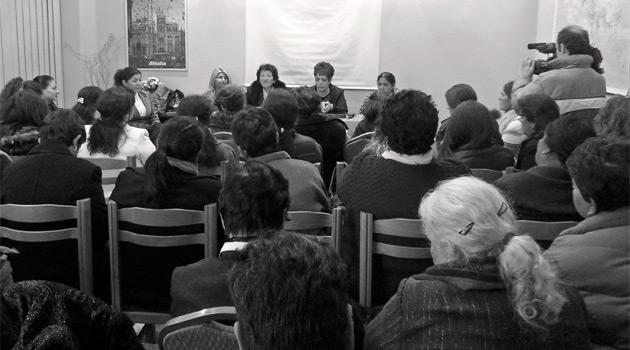As evictions continue in Albania, Romani women reach out to local elected officials

Activist Ola Tare in Albania has contacted the Roma Virtual Network to report the planned eviction of Roma families living in an informal encampment near a man-made lake in the capital, Tirana. The municipality reportedly announced the eviction on 2 October because of redevelopment plans and alleged that the families were "harm[ing]… the environment and their [own] health."
Tare reports that the families relocated to the capital several years ago to make a living collecting recyclable materials for resale. According to the activist, many have been repeatedly displaced starting in 2011, when someone set fire to their temporary dwellings near the main train station.
During 2012 the families were reportedly relocated to what Tare called a "former military camp" but were unable to stay there due to local community protests against that decision. In 2013 they were reportedly evicted from their next informal encampment by property owners seeking to develop housing in that location.
Tare reports that the upcoming eviction will be the fourth the Roma families have experienced during the last five years. Reportedly the municipality will provide temporary shelter to those who are officially-registered residents of Tirana and free transportation for the rest back to their "cities of origin", a measure that could violate their internationally-protected rights to housing and freedom of movement.
The activist notes that the families are some of the least educated in the country and that their living conditions will deteriorate if such relocation does not involve providing them with access to education and income-generation. Reportedly the local authority is not consulting with them on how resolve their situations.
Activist Manjola Veizi of Albania has recently published an article on her recent work to change just such relationships between local authorities and Romani communities. In January 2014, Veizi began organizing gatherings of Romani women throughout Albania to talk about what needs to change.
These gatherings identified many issues that were not just of concern to Roma, but to the broader community, issues like garbage collection, sewerage maintenance and street repair, for which local authorities are responsible. The Romani women timed the presentation of their demands during the run-up to local elections, which meant that incumbent mayors had a political incentive to take action on the issues raised.
Other successes of the Romani women’s groups included successfully advocating for a homeless Romani widow who had initially been denied social housing. Local officials have promised the women that they will assess the housing needs of impoverished Roma and develop processes for improving their housing.
Veizi reports that this informal group has now become the Roma and Egyptian Women Network, which is a grantee of the Open Society Foundations. The network convenes daily to monitor the progress of its work and has been covered by the Albanian media.
The activist advises other Romani women not to wait for someone else to take action on their behalf, but to start such movements from within their own communities and build alliances with more formal organizations, both in the larger Roma rights and women’s rights movements. She wants to encourage Romani women to speak up, beginning with their own families, noting that "women’s political participation starts at home".